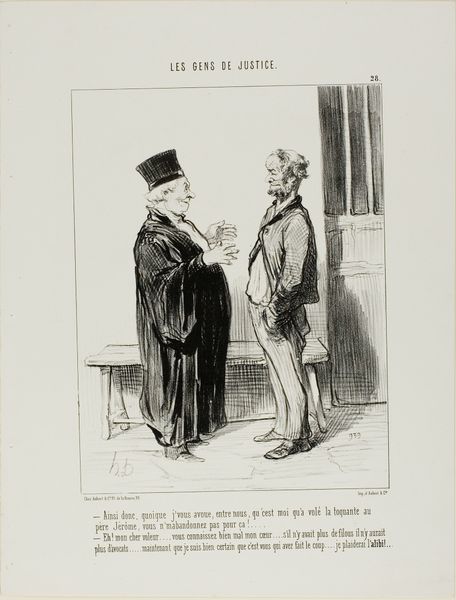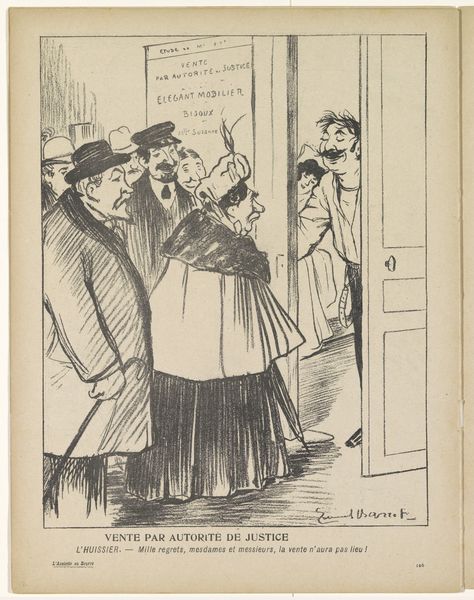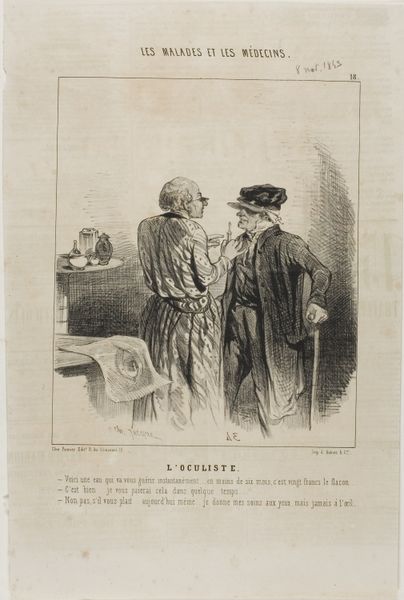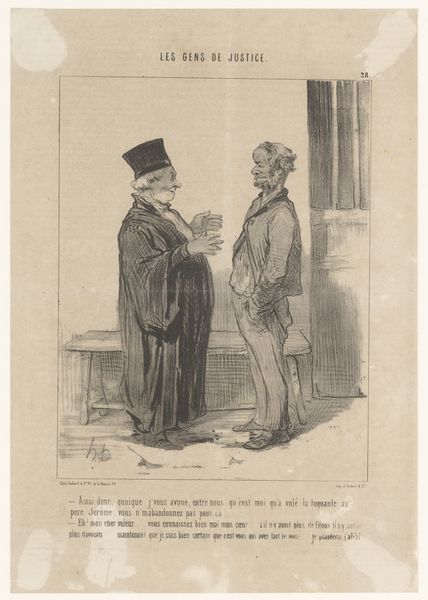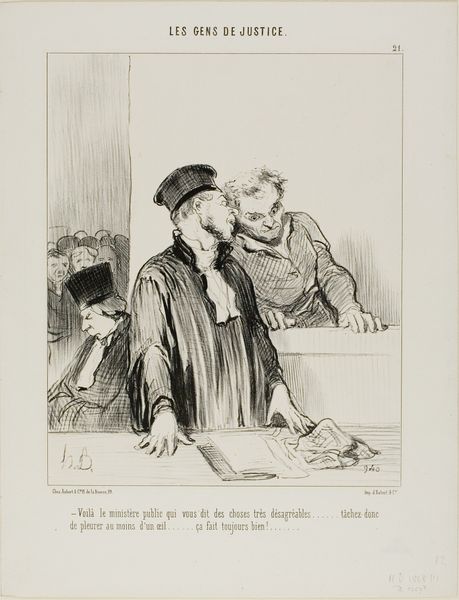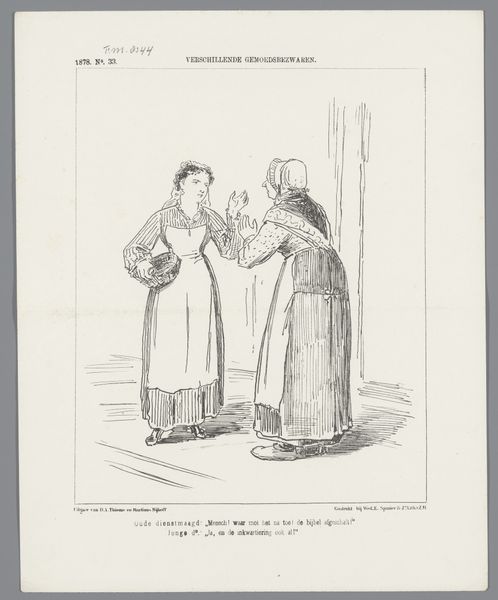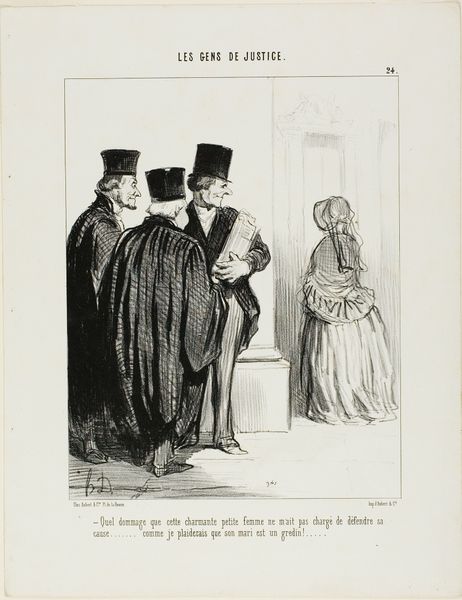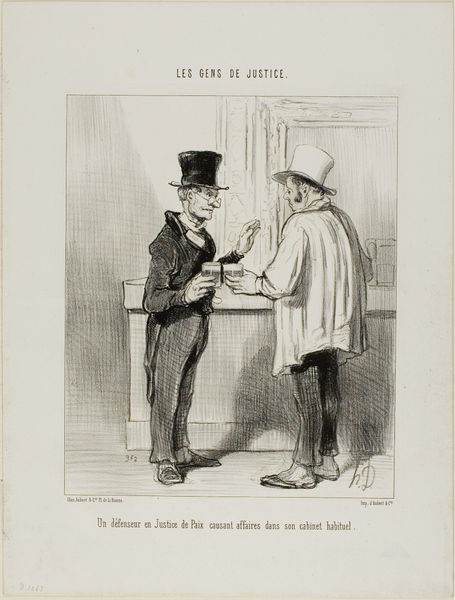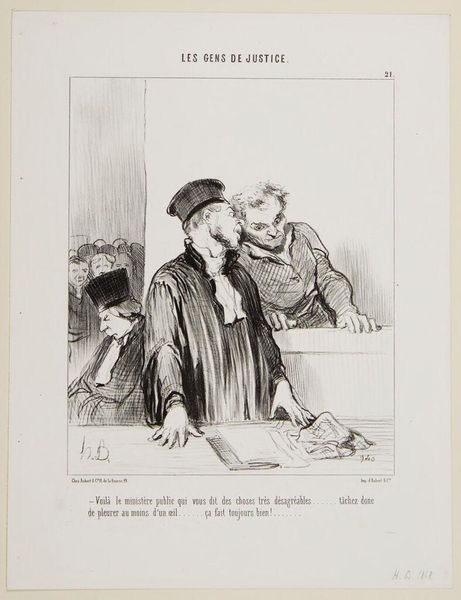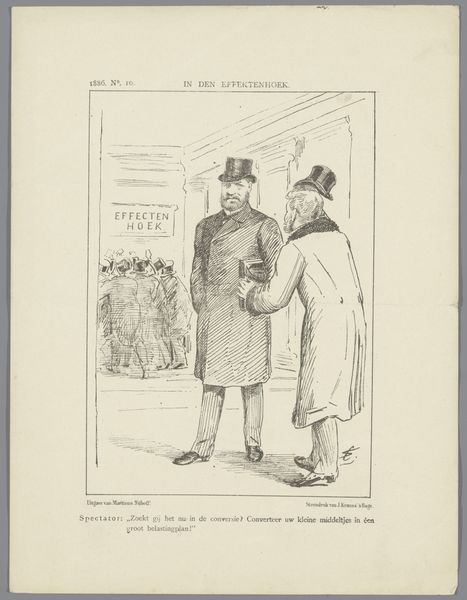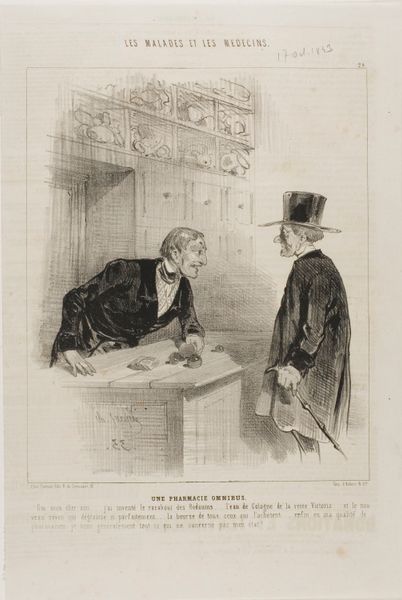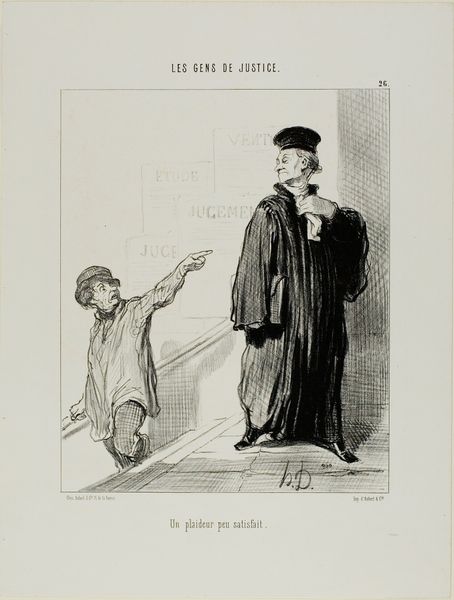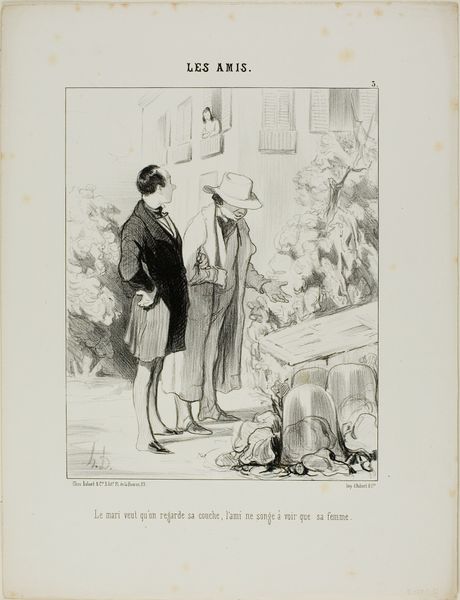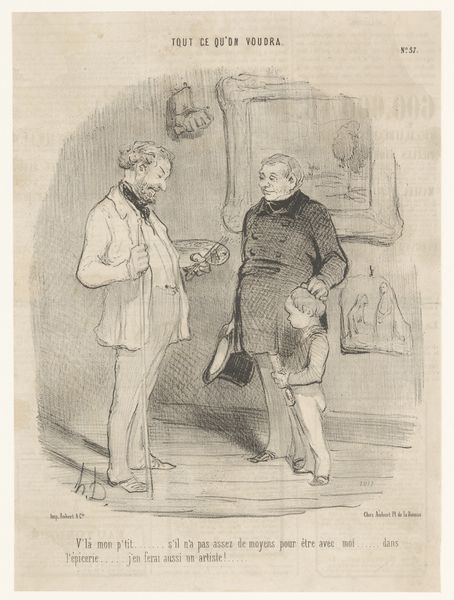
“My dear man... it is really quite impossible for me to take on your case.... you are missing the most important piece of evidence.... (apart) the cash to pay my fees,” plate 20 from Les Gens De Justice 1846
0:00
0:00
drawing, lithograph, print, paper
#
drawing
#
lithograph
# print
#
caricature
#
paper
#
romanticism
#
france
#
genre-painting
Dimensions: 226 × 196 mm (image); 344 × 263 mm (sheet)
Copyright: Public Domain
Curator: Ah, yes. Here we have Honoré Daumier's 1846 lithograph, "My dear man... it is really quite impossible for me to take on your case.... you are missing the most important piece of evidence.... (apart) the cash to pay my fees," from the series "Les Gens De Justice." It's currently residing at The Art Institute of Chicago. Editor: Gosh, what a study in contrasting weights. Look at the bulk of that judge, like a mountain in his robes, next to the stick-thin, hangdog client. It speaks volumes before you even register the subtitle. Curator: Precisely. Daumier's genius lies in this immediate visual storytelling. This work, part of a larger series, is a sharp commentary on the corruption and absurdity within the French legal system. He uses caricature to expose the imbalance of power, reducing it, in this case, to a matter of cold, hard cash. Editor: The line work, though. Notice how the lithographic crayon allows for such incredibly expressive shading, almost painterly in the judge’s robes? Then those very economic, almost dismissive, lines describing the poor fellow—it’s devastatingly effective. And even those hastily sketched posters in the back advertising the "VENTE," or sales, underscores this pervasive sense of transaction. Everything seems to have its price. Curator: A world where justice is publicly bartered, a sardonic stage indeed. Daumier wasn't just a draftsman, he was a social critic. He employed Romantic aesthetics, ironically, to deliver very real socio-political critiques. His romantic tendencies reveal themselves in his dramatic use of light and shadow to expose underlying psychological or social conditions. Editor: It's almost theater, isn’t it? Each character playing their tragic role in a play of inequity. It does spark a curious question about empathy. Are we meant to pity the slighted client, or see him, in his own way, as just another cog in this broken machine? Curator: Daumier doesn't offer easy answers, but he does lay bare the moral landscape. It's the mark of effective social commentary, isn't it? To poke at the viewer's conscience rather than to simply offer a narrative with neat solutions. Editor: Well said. There’s a universality in that bleak depiction, isn’t there? A timeless relevance that ensures Daumier’s pointed observations remain, sadly, rather piercing.
Comments
No comments
Be the first to comment and join the conversation on the ultimate creative platform.
